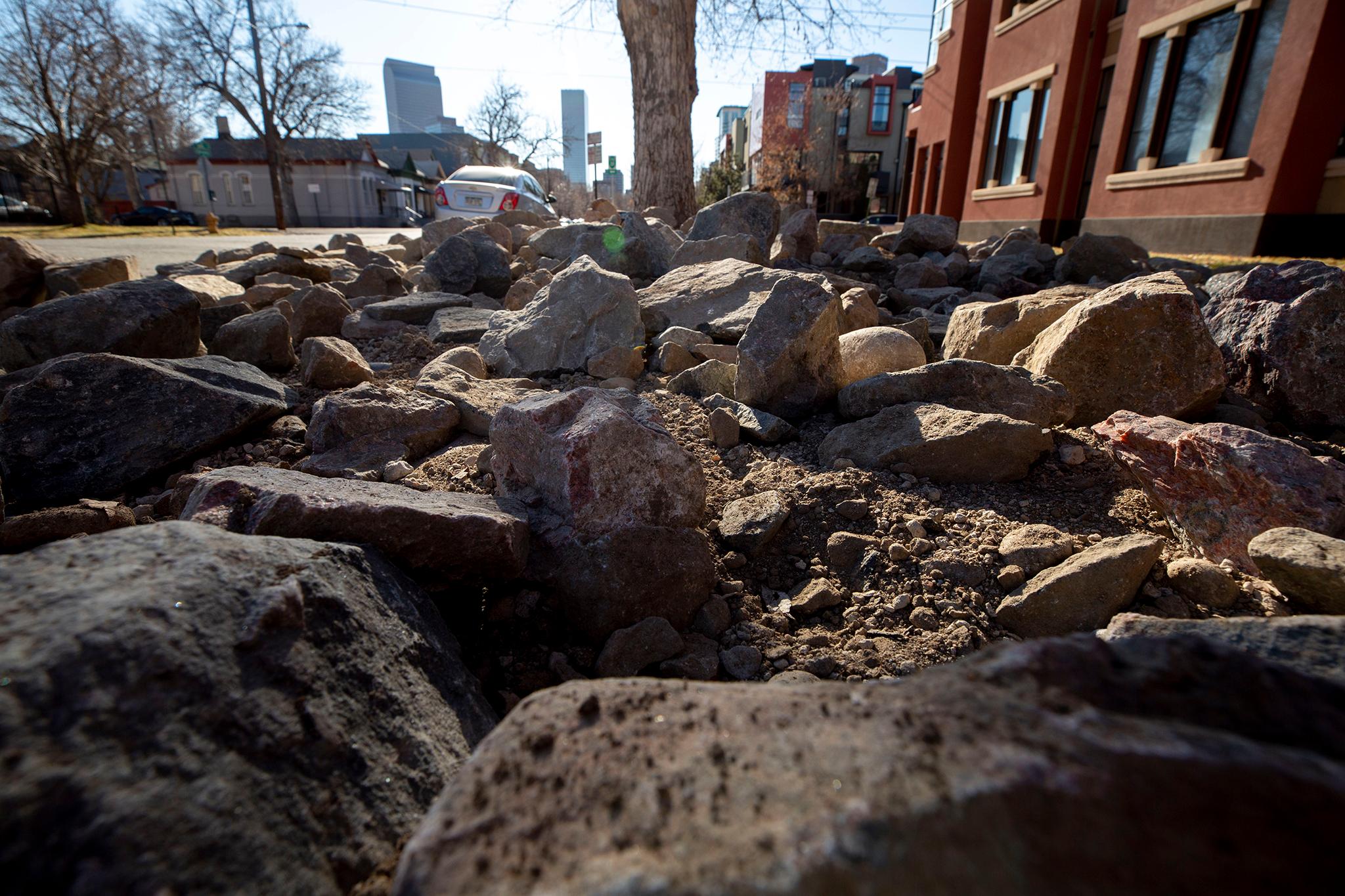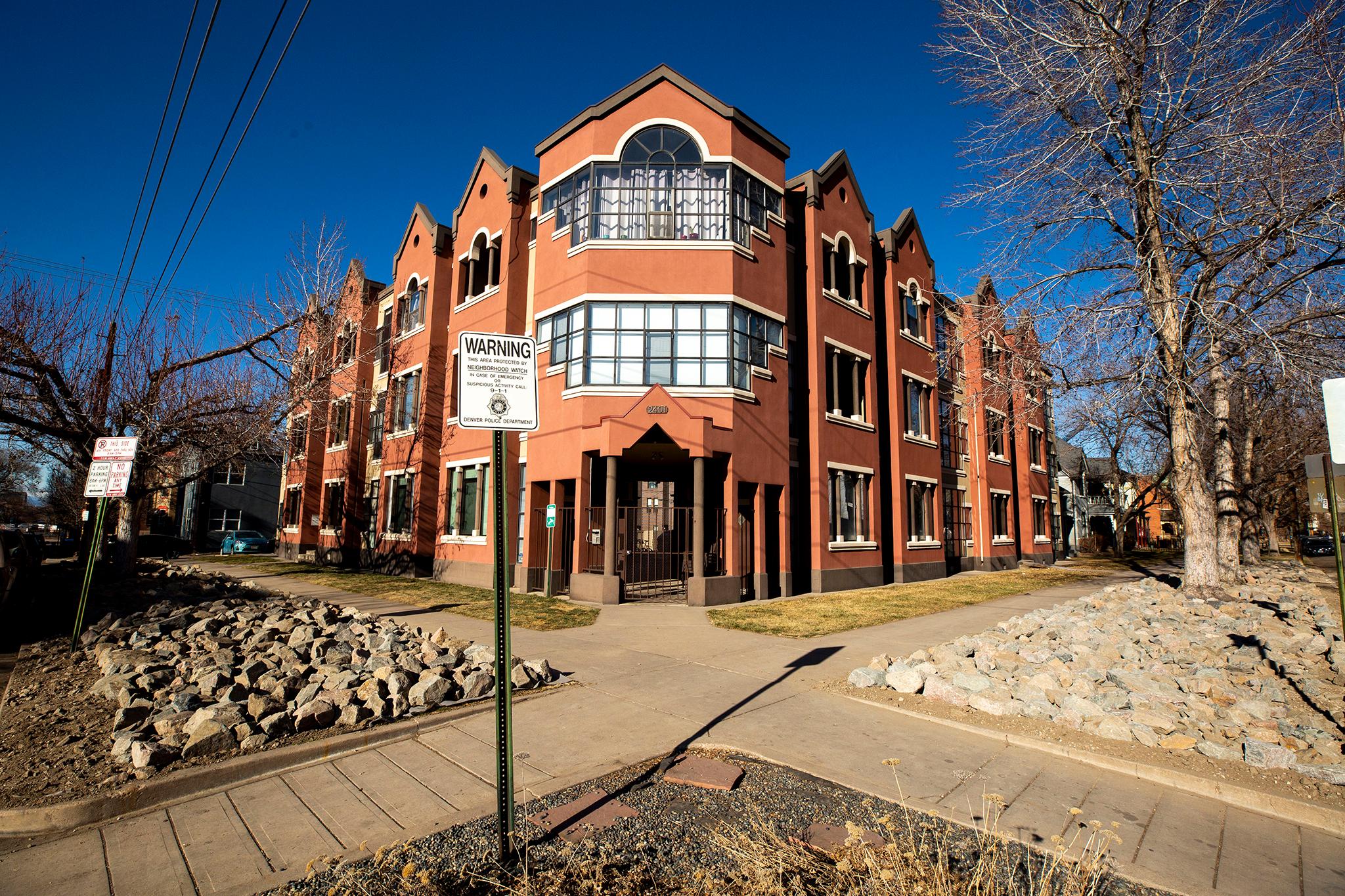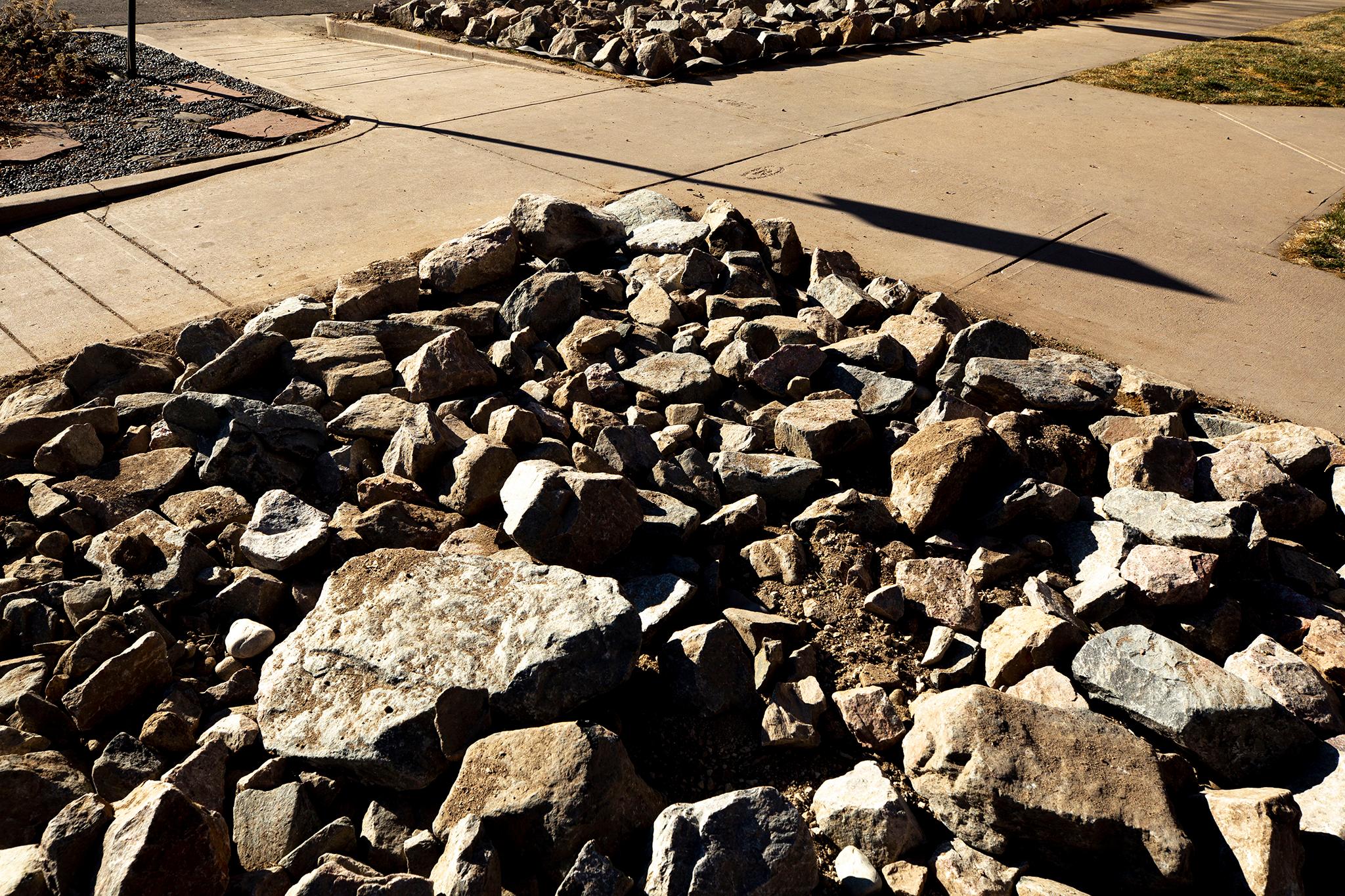Frustration over homeless encampments has spilled over in the form of landscaping that sends a message.
Workers have recently placed jagged rocks and chunks of concrete on the tree lawn -- the patch between the sidewalk and the curb -- outside a condominium complex at 505 24th St. in Five Points.
"It keeps off the tents," said Shantel Woon-Sue, who owns a unit in 505 24th St. "It's hard to go home and have to step over tents."
Nathan Hale said he was not consulted and arrived home to the complex last week to find the changes being made along Glenarm Place and 24th Street. He thinks the rocks are the wrong response.
"It looks terrible," Hale said. "It's just super unwelcoming."
Dakota Greene said he had been living for about a month in a tent pitched alongside a half dozen others on the tree lawn just northwest of 505 24th St. Greene said he knew why he wasn't welcome.
"I understand how it looks -- trashy, horrible," Greene said. "But being homeless is horrible."
According to a notice from the city posted on a street pole nearby, the Department of Transportation and Infrastructure (the old Department of Public Works) have planned a clean-up in the area on Feb. 4.
"That gives us time to find a new place. I appreciate that," Greene said Tuesday. He added he wasn't sure where he would go.
"The river's like 20 degrees colder than up here," he said, referring to the banks of the Cherry Creek and the South Platte River where people experiencing homelessness sometimes camp. "That's where they're trying to force us."
"It's not so easy when you get to this point to climb out of the hole," Greene said. "Especially when everyone's against you, kicking you down."
"How's someone supposed to find work if they've got to move every day?" said Greene, who relies on day labor for income. "How's someone supposed to maintain a job if they have to move every day?"
Brandy Majors had two wheelchairs -- one motorized, one not -- parked outside her tent next to Greene's. She said she and others in the group she describes as like a family had kept a lower profile, sleeping in alleys, until hearing in late December that a Denver judge had found that the city's urban camping ban was unconstitutional. The judge reasoned that in a city with an affordable housing crisis, Denver's shelter system was inadequate to the point that prohibiting camping amounted to cruel and unusual punishment.
Majors said being confined to a wheelchair meant many shelters were inaccessible and left her feeling vulnerable when she managed to get into one.
"I need to be around people I know won't let anything happen to me," she said, speaking from the warmth of her tent on a cold morning, occasionally sticking out a hand with which to gesture.


Greene said his anxiety made crowded shelters uncomfortable. He added that belongings are stolen in shelters.
Majors said she believed the judge's ruling meant "we don't have to be just in the alley. We can be here as long as we're respectful."
"We all talked about it," Majors said. "We're supposed to keep our area neat and tidy and drama-free."
Majors said she expected other homeowners to adopt 505 24th Street's tree lawn rocks.
Two firefighters who arrived as Majors spoke said they were checking to see whether anyone living in the tents needed medical care, and to advise them that using propane tanks created a fire hazard.
While Majors said she and her friends tried to keep their camp orderly, homeowner Woon-Sue said people in the building next door have to deal with propane tanks, the smell of gas, rodents and debris.
"The police can't help" homeowners, Woon-Sue said. "The city can't help you."
"It is really frustrating," she said.
City attorneys argued that Denver's shelter system met emergency needs and immediately appealed the judge's order on the camping ban's constitutionality, the start of a lengthy process. Denver police suspended enforcement of the camping ban for two weeks after the judge's order, until the City Attorney's Office determined it could be enforced pending the appeal.
The camping ban, adopted by the Denver City Council in 2012, makes it illegal to use a tent, tarp, lean-to, sleeping bag, bedroll or blanket as shelter in a public place. The protocol for enforcing the ban ensures it is rare for a written warning to be issued, and even rarer for an officer to issue a ticket or make an arrest. The law stipulates that police should prioritize getting people to comply simply by asking and delivering help for those who need it.
City officials say the ban is meant not to criminalize homelessness, but to protect health and safety in Denver while creating an avenue for connecting people experiencing homelessness to services as it workeds to increase the supply of subsidized housing that Denverites on low and moderate incomes could afford.
The Department of Transportation and Infrastructure's authority to clean up public areas is not related to the camping ban. Nor is the Denver's Department of Public Health and Environment's ability to act to protect public health.












